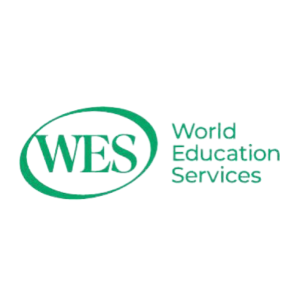This World Education Services blog post guides resettlement providers on supporting ORR-eligible newcomers’ career development. It emphasizes early discussion of clients’ educational backgrounds, offering strategies to understand skills, build support plans, and navigate credential evaluation. The post further provides practical tips for inquiring about international education, as well as using career tools and setting realistic expectations. Finally, it includes considerations for those with limited proof of their academic credentials and a sample intake form for collecting crucial educational and professional information.
As a resettlement provider, you play a critical role in helping Office of Refugee Resettlement (ORR)-eligible newcomers rebuild their lives and pursue their career goals in a new country. By asking about their educational backgrounds early in your interactions, you lay the foundation for more personalized and effective career support during the resettlement process. Having these discussions early on may also boost newcomers’ confidence and motivate their progress toward meaningful and fulfilling long-term employment integration.
Why Ask About International Education Right Away?
Starting the conversation about education early in your interactions with newcomer clients is key for several reasons:
- Understanding Unique Skills and Qualifications: Refugees have diverse educational backgrounds and experiences. By learning about their educational history, you gain insights into their unique skills, qualifications, and career aspirations. These insights can help you avoid advising clients to repeat educational steps, such as pursuing a GED program when they already have a qualifying high school diploma from another country.
- Building Individualized Support Plans: Each refugee’s journey is different, and their professional goals may vary widely. Understanding their educational background helps you create individualized support plans that are aligned with their career goals. Whether they aim to continue their education, seek employment in their field, or pursue professional re-licensure, a personalized plan catered to their education can make a significant difference in their resettlement success.
- Identifying Education Programs and Training: In some cases, there may be gaps between a refugee’s qualifications and the requirements for a specific occupation in their new country. By understanding their educational background, you can identify appropriate education programs or training opportunities to help them meet these requirements.
- Guiding Through Credential Evaluation: The process of getting credentials evaluated in a new country can be complex and time-consuming. Early discussions about education can allow you to guide clients through this process, helping them understand the steps, costs involved, and resources available to them based on their educational background. See the box below for more details on credential translation, evaluation, and recognition.
- Credential Translation: Translating a credential involves converting it from one language to another without assessing its equivalency. In the U.S., translation is typically a prerequisite before the credential can be evaluated and recognized. Some credential organizations handle translations internally, while others collaborate with external translation service providers.
- Credential Evaluation: This is a report that helps employers, licensing bodies, and higher education institutions understand the value of education and qualifications earned from another country. Discover more here or through this on-demand webinar (available in English and Spanish).
- Credential Evaluation Services: Several reputable organizations provide credential evaluation services, including those approved by the National Association of Credential Evaluation Services (NACES) such as World Education Services (WES), Educational Credential Evaluators (ECE), and the International Education Research Foundation (IERF). Note: Always check with a state’s licensure board or receiving institution first, as each may require an evaluation from specific evaluation agencies.
- Credential Recognition: Credential recognition happens when an employer, licensing body, academic institution, or other authority accepts a credential evaluation report. This acknowledgment ensures that the individual’s qualifications are recognized and valued in the new country.
Career Background Intake and Next Steps
Effectively inquiring about international education is crucial for providing tailored support to newcomers. The following strategies will help you gather essential information, assess skills, and guide clients through the credential recognition process, setting the foundation for successful career pathways in their new country.
Create Dedicated Sections in Intake Forms and Interview Scripts
Add specific sections to your intake forms or interview scripts that ask about the client’s highest level of education completed, specific degrees or certifications earned, and relevant work history. This helps you efficiently gather detailed information and can help populate resumes and cover letters. See a sample intake form below.
Assess English Skills
Begin by evaluating the client’s current level of English proficiency. Emphasize that English fluency plays a crucial role in achieving a successful career path in the U.S., and help set realistic expectations based on their language level. Vocational English classes provide an effective starting point, focusing on job-specific vocabulary and skills suited to entry-level roles. For individuals targeting mid-level careers, advanced career transition programs offer a blend of enhanced English instruction and specialized vocational training. These programs equip learners with the language and professional skills needed to thrive as they re-enter specific fields.
Use Career Pathways Tools
Utilize tools like the World Education Services (WES) career pathways tool to help develop customized career plans for clients. The tool will prompt you to enter details on the client’s education and work history. It will then provide a customized report that can offer valuable insights into how they can continue their career path in the U.S. or transition into related and alternative careers. A degree equivalency tool can help newcomers understand how their credentials earned abroad may compare to U.S. standards and what steps they need to take to achieve their career goals.
Refer to Career Coaching Services
Leverage career coaching services such as Upwardly Global , which provides national support, or explore local programs listed on the ORR website under Career Pathways Recipients ,ORR Career Pathways Recipients for additional support and guidance in navigating the job market and credential evaluation services.
Set Realistic Expectations
Inform clients that credential evaluations can be time-consuming and expensive, so encourage them to start the process early and be prepared for potential challenges along the way. Clarify the specific circumstances where evaluations are required, such as for licensure or graduate school, to help them avoid unnecessary expenses or efforts. (For more on these circumstances, read our Career Development for Internationally Trained Refugees blog post here). Explain that funding may be available through ORR- or Workforce Innovation and Opportunity Act (WIOA)-funded programs and that some employers may reimburse evaluation costs. Note that having an international education may not automatically disqualify individuals from the Free Application for Federal Student Aid (FAFSA), so encourage clients to look into the available options. Additionally, highlight that requirements for credential evaluations vary between employers, universities, and licensing organizations. (See our previous blog post for more on this here.)
Additional Expectations to Keep in Mind
Evaluation reports can come back with results different than expected. (Use the iGPA Calculator for some general equivalency guidance.) Clients may also not have the right documents to meet the requirements for an evaluation. Clients who cannot obtain official academic documents may be eligible for the WES Gateway Program, which is available to eligible individuals with education from Afghanistan, Eritrea, Iraq, Syria, Türkiye, Ukraine, and Venezuela living in the U.S.
You can direct ORR-eligible newcomers who have been forcibly displaced due to adverse circumstances and have limited access to their academic credentials to the WES Gateway Program. They should review the eligibility criteria and connect with a referral partner, such as Upwardly Global. Eligible individuals can receive a free credential evaluation. By bridging this gap, qualified talent can be considered for roles, ensuring that no great candidate is overlooked. Note: As of December 2024, this program is only available to individuals educated in Afghanistan, Eritrea, Iraq, Syria, Türkiye, Ukraine, and Venezuela who meet the program requirements.










